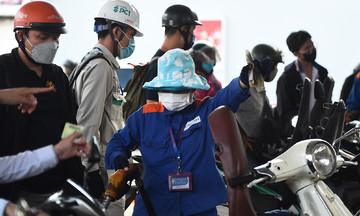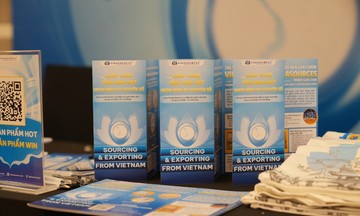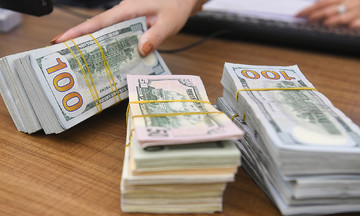At a conference hosted by Dragon Capital this morning, an investor sought advice on the optimal time to take profits in the stock market. Vo Nguyen Khoa Tuan, Senior Director of Securities, observed that over the past 3 years, many investors haven't maximized their profits due to the prevailing belief that they should sell whenever stock or fund prices reach all-time highs.
He cited an example from 1-2 weeks ago, where numerous investors asked him how to react to the DCDS open-ended fund reaching a record high. Just a few days later, the same question resurfaced. According to Tuan, this is a natural occurrence in a market with significant growth potential.
"Our constant concern is that investors often take profits too early," Tuan emphasized.
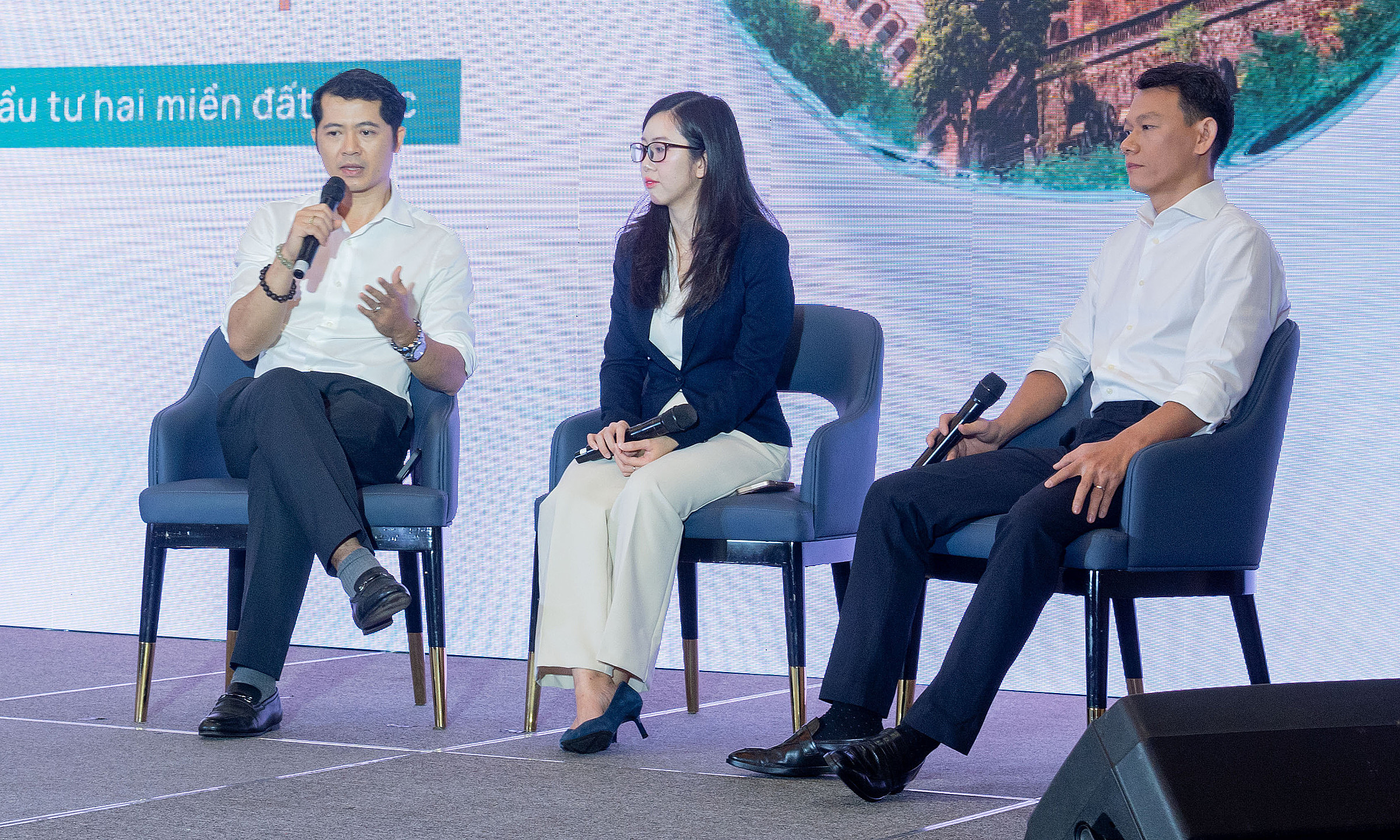 |
Vo Nguyen Khoa Tuan (holding the microphone) answering investor questions. Photo: Dragon Capital |
Vo Nguyen Khoa Tuan (holding the microphone) answering investor questions. Photo: Dragon Capital
The Senior Director believes that investing is a long-term process. Vietnam is currently in the early stages of a major, long-term growth cycle. Therefore, with a 3-5 year outlook, the potential for high returns in the stock market remains substantial. If investors sell every time a fund increases by 5-15% to realize profits, they are "ending the game" prematurely.
Historically, the Vietnamese stock market has experienced strong rallies with gains of 50-70%. Many investors haven't fully capitalized on these surges due to a tendency to frequently buy and sell, and to try to predict the market, despite the low probability of accurate predictions. Tuan believes that constantly selling and then trying to buy back in is both mentally taxing and incurs costs with each transaction.
"We view the current market surge as a signal to prepare for increased investment," Tuan shared.
Dragon Capital's argument for increased long-term investment is based on a positive macroeconomic outlook. Le Anh Tuan, Chief Investment Officer, believes that the driving force of economic growth always lies in internal strength, while external factors primarily influence macroeconomic balance.
He cited the period from 2011-2012, when exports grew by double digits, but the overall economic health deteriorated and growth slowed due to internal issues. This remains relevant today, as foreign direct investment (FDI) enterprises account for only 4.5-4.7% of the total workforce, with the textile and garment sector representing 2.8%.
The initial positive outcome of tariff negotiations with the US has lifted some of the concerns that have shrouded the market, according to Dragon Capital. Regarding the 40% tax on transshipped goods, Dang Nguyet Minh, Head of Research, stated that it shouldn't be a major concern. These goods contribute almost zero domestic value added (DVA) to the economy and therefore won't significantly impact GDP.
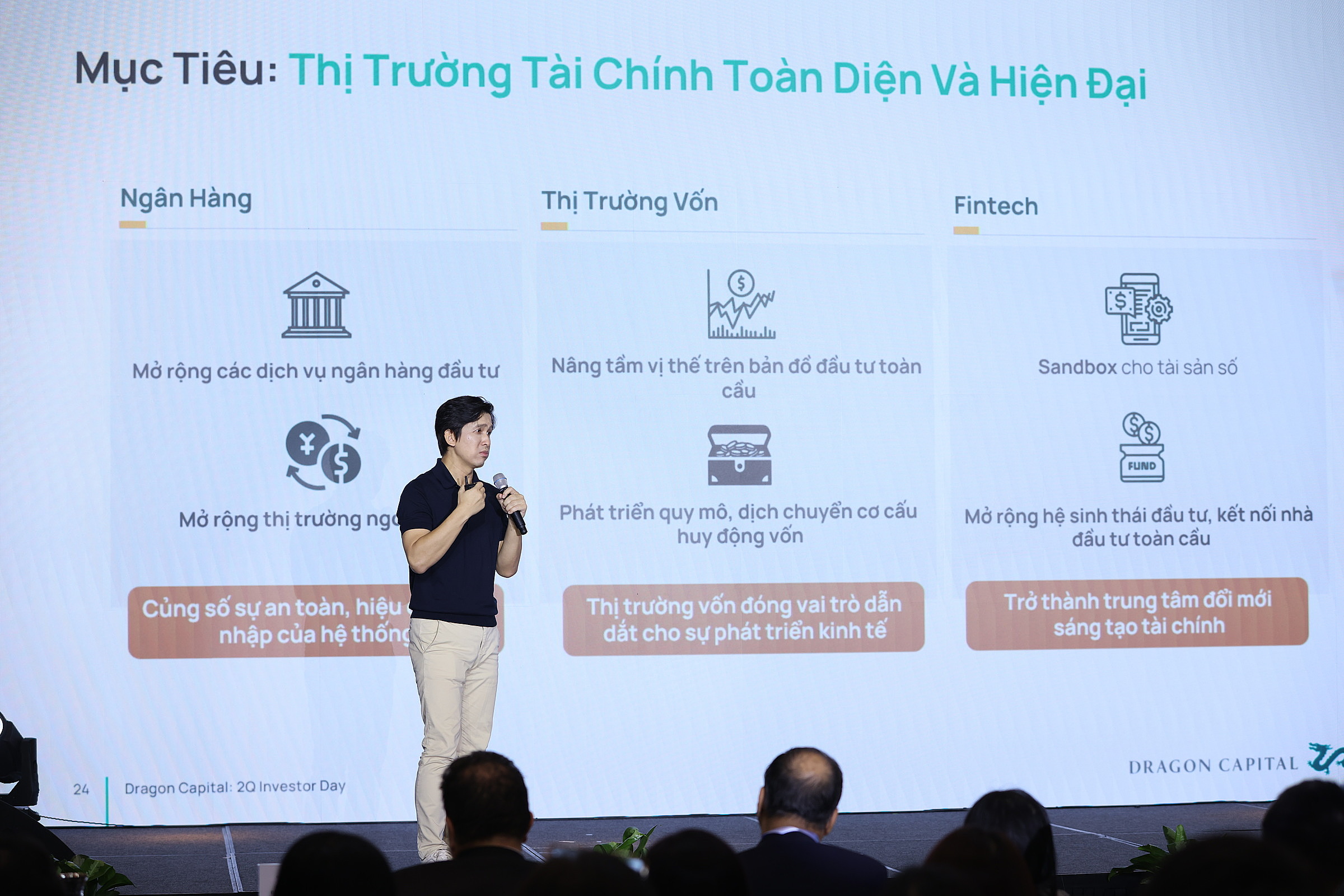 |
Le Anh Tuan sharing his long-term economic outlook. Photo: Dragon Capital |
Le Anh Tuan sharing his long-term economic outlook. Photo: Dragon Capital
Dragon Capital experts assess Vietnam's long-term economic growth potential as substantial, supported by comprehensive infrastructure investment, a shift in economic growth drivers, a focus on globally competitive industries, and the development of a robust financial market. The shift from prioritizing FDI attraction to focusing on domestic factors, promoting internal growth, and strengthening the private sector is seen as a major breakthrough.
However, on the path to long-term development, both the economy and the stock market will inevitably experience short-term corrections. Le Anh Tuan likened these to potholes, or even "buffalo wallows". However, with a clear destination in mind, these obstacles shouldn't deter investors. He believes they should be viewed as opportunities for those who are steadfast and have a long-term perspective.
Tat Dat




